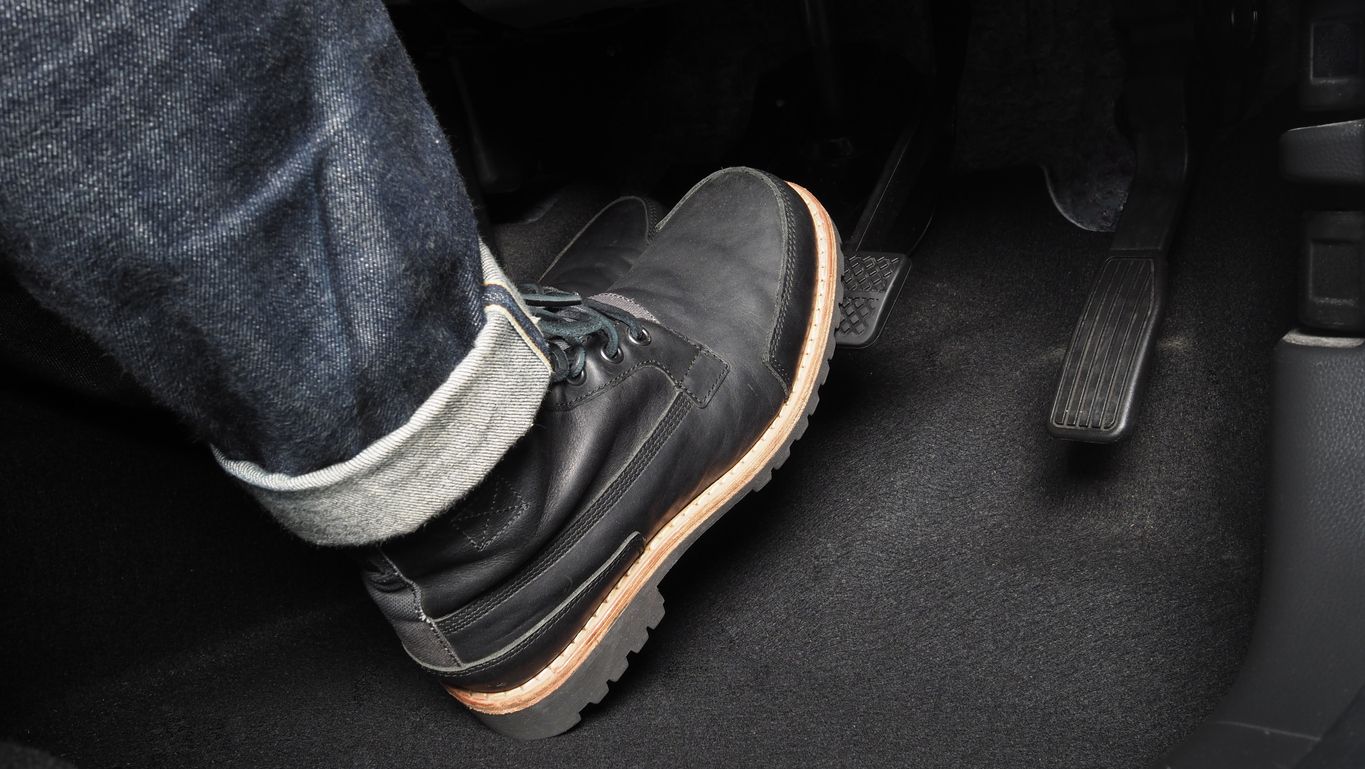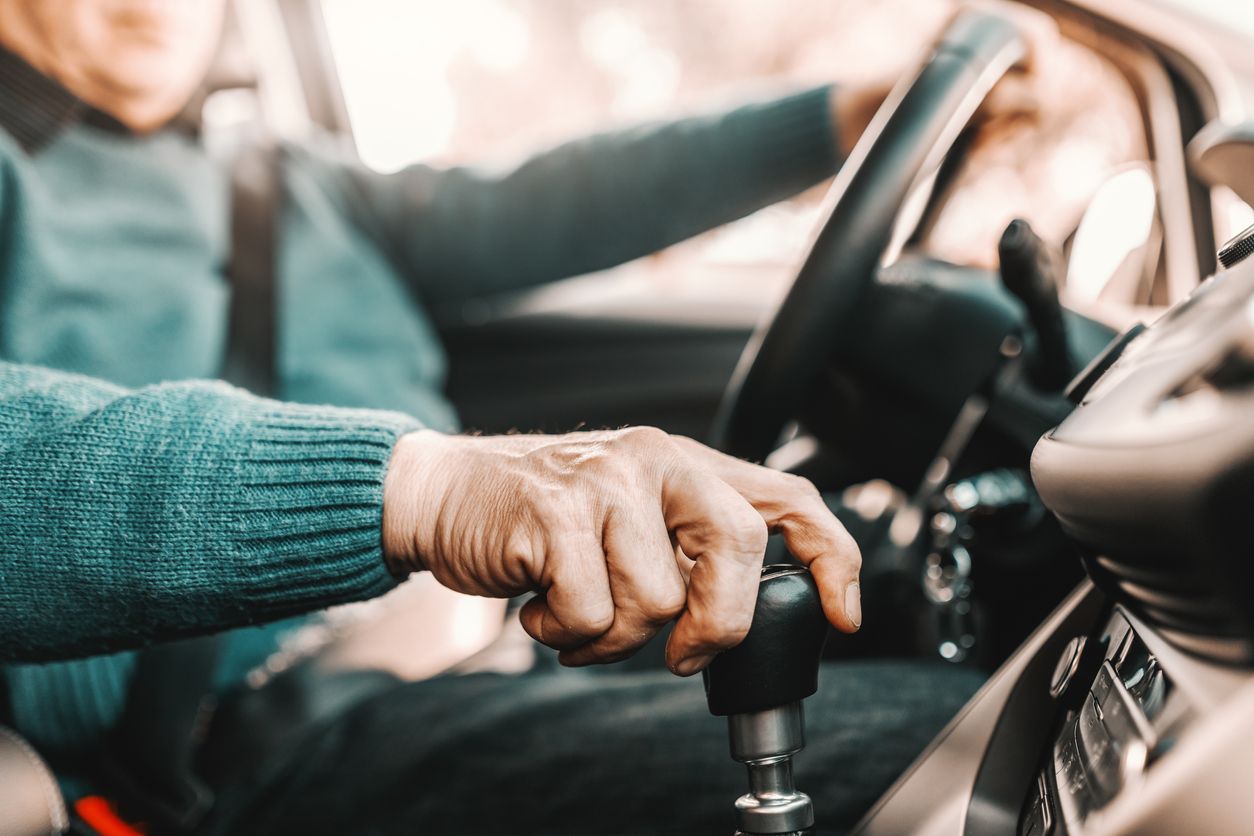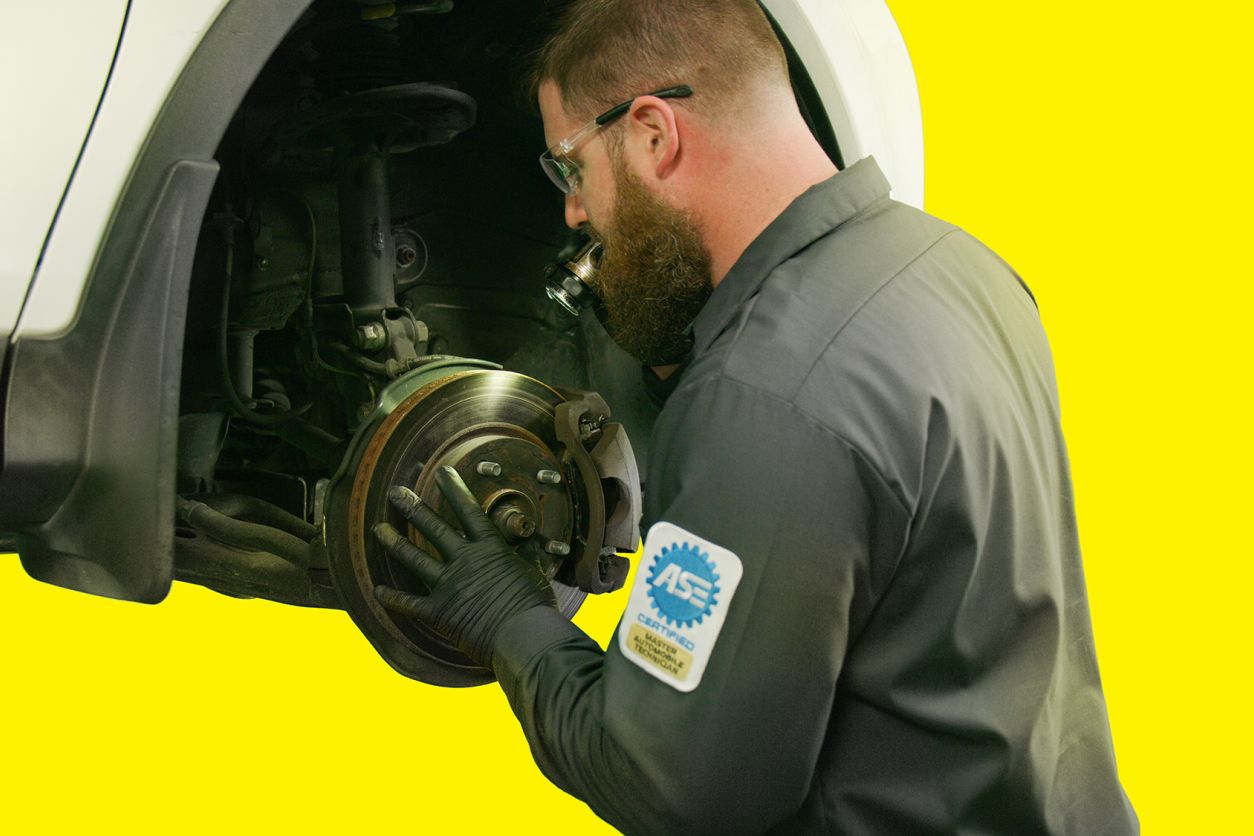It goes without saying that your brakes are one of the most important systems in your vehicle. So if your car feels shaky when braking, you shouldn’t ignore the issue. Read on to get to the bottom of why your car is doing the cha-cha at inconvenient moments.
How Brakes Work
We’ll be “braking” down the potential culprits of your shaking vehicle in a moment, but first, here's a basic overview of how brakes work. When you step on your brake pedal, it sets a rapid sequence of events in motion:
- The brake pedal arm actuates the master cylinder, which builds hydraulic pressure within the brake lines.
- That pressure pushes brake fluid into the pistons inside of your calipers.
- The caliper pistons push against the brake pads.
- The brake pads clamp against your rotors, which are large, flat, metal discs attached to your wheel hub assemblies or axles.
- The friction of the brake pads on the rotors slows down your wheels until your vehicle comes to a stop or you let off the brake pedal.
What Causes a Car to Shake When Braking?
It’s a troublesome feeling when your car shakes when you brake. If the shaking only occurs when you’re braking while driving, particularly on a vehicle with front or all-wheel disc brakes, this may be caused by a number of issues, including those listed below:
Worn Brake Pads
Brake components wear over time — there’s no avoiding it. And depending on how either the pads or rotors wear, you may feel vibrations. If your vehicle vibrates when you apply the brakes and is accompanied by a high-pitched squealing sound, it’s likely time to get your brake pads replaced.
Warped Brake Rotors
Over time, brake rotors can become “warped,” meaning their surfaces are no longer flat. This can happen due to aggressive braking habits. When rotors warp, the brake pads have to constantly adjust to their varying thickness, which can cause vibration in your car and even your steering wheel, depending on which rotors are warped.
Stuck Brake Calipers
Disuse and corrosion can cause brake calipers to seize in multiple ways. Caliper slide pins can seize and restrict movement of the caliper, causing unequal clamping force on the rotor or pad drag on the rotor. This may result in less responsive brakes, pulling to one side while braking, or overheating of the brake assembly.
If the caliper piston becomes seized, it will be unable to move. The piston could become seized in the inward position. In effect, it may not move or provide clamping force when the brakes are actuated. The piston may also become seized in the outward position, causing the pads to make constant contact with the rotor — sometimes resulting in a fully locked up wheel. If the latter happens, your vehicle may have a difficult time accelerating from a dead stop.
Worn or Unbalanced Tires
During tire installation, your wheels are put on a wheel balancing machine, which rapidly spins them to identify any natural variations in weight. Then, wheel weights are installed to compensate for any imbalance in the tire, so that it spins evenly on your vehicle.
If your tires have worn out, those weights may need to be rechecked if you have noticed vibrating while driving at any speed.
Poor Wheel Alignment
During a wheel alignment service, the angles of your vehicle’s wheels are set to their manufacturer’s specifications — something that is crucial for smooth driving and a straight steering wheel. If your car has not been aligned in a while, those angles could be out of alignment, causing your wheels to pull in different directions while cruising down the road.
Worn Suspension Components
Worn suspension components may have difficulty supporting your vehicle and maintaining proper alignment, leading to vibrations and shaking that become more pronounced at highway speeds or during braking. Regular suspension inspection and maintenance can help catch these issues early and help prevent damage to your braking system.
Narrowing Down the Culprits
Now that you know what can cause cars to shake when braking, the next step is to determine which issue is at the heart of your bumpy ride. To help you do so, find the statement below that best aligns with your symptoms:
My Car Shakes When Braking at High Speeds and Pulls to One Side
Stuck brake calipers are often the culprit behind vehicles that shake and pull to one side during braking. When calipers stick, they provide a different level of pressure on their rotor than the other calipers do. This causes the wheel to spin at a different speed, which effectively turns your vehicle in one direction or the other, depending on which side the caliper is dragging the brake assembly. You may also notice:
- A less responsive brake pedal
- Difficulty accelerating
- Unusual sounds during braking
- A burning odor during braking
My Car Vibrates When I Apply the Brakes, and the Steering Wheel Shakes
A steering wheel that vibrates or shakes when braking is one of our top four signs it’s time for rotor replacement. This symptom is especially likely when one or more of your front rotors is warped since vibrations are more easily transferred through your steering system via the front wheels.
However, there can be many causes for a shaking steering wheel, and not all of them pertain to your rotors. Improper tire balance, stuck brake calipers, and even suspension problems can all cause you to feel vibrations in your steering wheel.
My Car Idles Rough When Braking
If your car is vibrating when you're braking and idling — meaning your foot is on the brake, your engine is running, and your vehicle is not in motion — the problem may be related to the power brake booster assembly, if your car has one.
Many power brake boosters pull vacuum from the engine to increase braking pressure and reduce brake pedal effort. When these boosters fail, they can sometimes develop vacuum leaks, causing them to pull too much vacuum from the engine, resulting in rough idling.
Can’t Shake That Vibration? Tires Plus Has Your Back!
Shaking and vibrating while you brake is more than just annoying — it can be a sign of serious wear you don’t want to ignore! Stop by your nearest Tires Plus for brake services or a Complete Vehicle Inspection if your car exhibits other worrying symptoms. Our expert technicians will diagnose the cause of your car’s shakes and give you all the details before starting any repairs. Schedule an appointment today!


